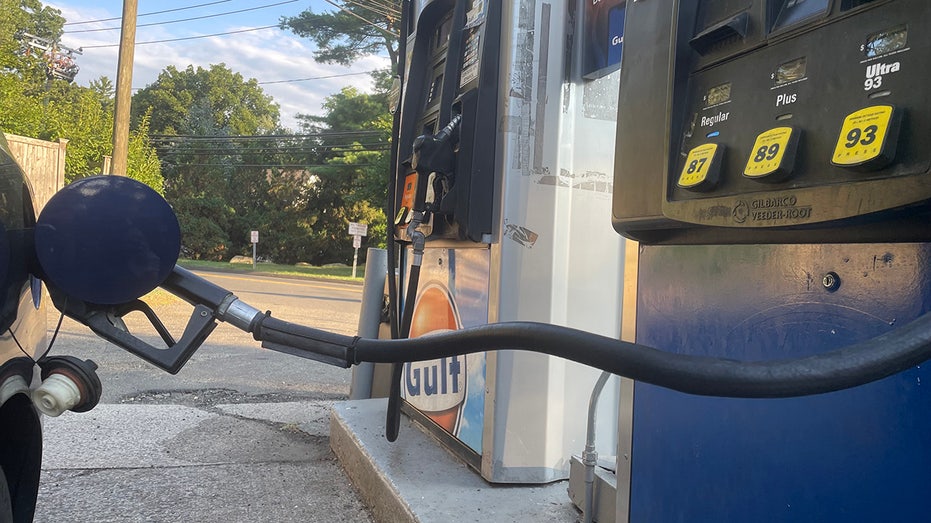High gas prices leading American drivers to shift lifestyle habits
Gasoline prices have been on a steady decline since June 14
Many Americans are driving less, reducing the number of shopping trips they take and even cutting back on dining out due to elevated gas prices, according to a new report.
In a survey of more than 1,000 adults, more than half – 64% – said they have altered their driving habits or lifestyle since March to offset the pain at the pump.
Eighty-eight percent of those motorists have been driving less, while 74% have been combining errands and 56% have reduced shopping trips or dining out, according to the data from AAA. The volatile gas prices have also forced 29% of motorists to postpone vacations.
Also, a recent Fox News poll showed that more than half of voters surveyed said they have changed their summer travel plans because of gas prices.
The national average retail price for regular gasoline fell 17 cents from a week ago and is sitting at $4.32 as of Tuesday, down 69 cents from the record high of $5.01 per gallon on June 14, according to AAA data.

A customer pumping gas at a station in Connecticut. (FOX Business/Daniella Genovese )
For the last 42 consecutive days, prices have been on a steady decline driven by a drop in domestic gasoline demand and weaker crude oil prices. Still, Tuesday's national average is $1.17 more than it was a year ago, according to AAA.
"Crude prices declined last week as the market continues to worry that weak demand, which was expected to remain robust throughout the summer, could continue to push prices lower," AAA spokesperson Andrew Gross said Monday.
BIDEN ADMIN OFFICIAL TOUTS IRAN NUCLEAR DEAL AS A WAY TO BRING US GAS PRICES DOWN
If crude oil prices remain under $100 a barrel, demand remains flat and if there is a mild hurricane season, then prices are likely to continue to ease, Gross told FOX Business. Oil accounts for nearly 60% of what a person pays at the pump, according to the EIA.
The Schork Group principal Stephen Schork told FOX Business that even with this cool down, prices are still 40% greater than the average of the last 46 summers when adjusted for inflation, which means consumers will continue to change their driving habits.
GET FOX BUSINESS ON THE GO BY CLICKING HERE
Specifically, Schork projects that gasoline demand will continue to fall as cash-strapped consumers prioritize spending on food as prices spiked 10% year-over-year in June and "keeping the lights on."





















